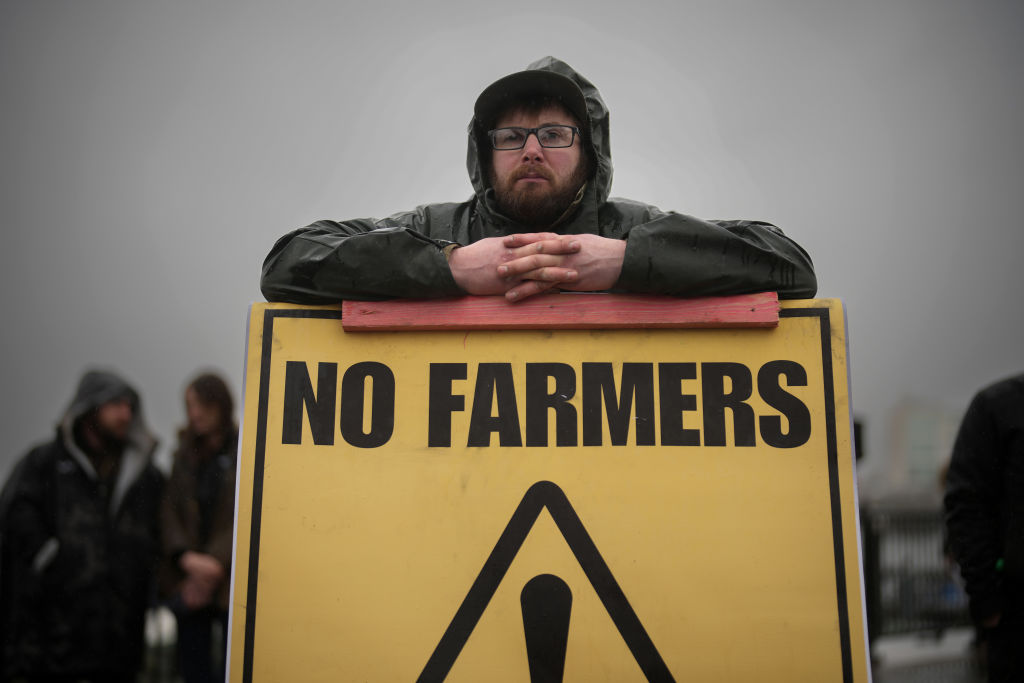We are about to learn the political salience of farming. Following an extraordinary rearrangement of rural representation at the last general election, this week’s Budget is the latest evidence that the Labour government is intent on stress-testing its new relationship with the countryside.
In July Labour won almost half the nation’s rural seats, a surprising turnaround for a party that has struggled in the countryside for over two decades. Labour’s rural fortunes waned from a Blairite zenith of roughly 100 rural constituencies in 2001 to a mere 22 heading into the 2024 election, when Starmer captured 114 countryside seats — more than five times as many.
One might think Labour would be cautious with its new rural support, or even triumphalist. Yet a few months later, Chancellor Rachel Reeves has frozen the farming budget at 2014 levels — a significant cut in real terms given inflation — and capped agricultural property relief.
Farmers’ inheritance tax relief rarely lights up the front pages, but this time it has cut through. There is real concern for the future of 70,000 family farms which now face having to sell land to pay inheritance tax bills, a concern both Jeremy Clarkson and Kirstie Allsopp have starkly characterised as “shafting” farmers.
Labour has long been guilty of writing the countryside off as Tory territory. Indeed, the party has often refused to engage with rural issues — a trend that has gone on for years. Yet prior to the election, there was much briefing that things had changed: Labour was listening to the countryside and talking to farmers.
As it turned out, farming — and even nature — barely featured in Labour’s manifesto. It was constrained to a small paragraph in the “Clean Energy” section, and despite the obviously squeezed word count, the party still found space to include an urban-coded promise to end the badger cull. Anecdotally, there was little sense in Labour policymaking circles that agriculture and land management could contribute to growth; if there was any agricultural priority at all, it was preventing farmer protests spreading to the UK from the continent.
Yet, as I wrote here back in February, British farmers suffer from a crisis of political confidence that has mostly kept tractors off the streets of London. As their European counterparts protested across Ireland, Belgium, France, Poland and Germany, our farmers fretted over whether the public would support them if they dared raise a ruckus of their own.
Perhaps that lack of confidence in farming’s political significance has reached Labour HQ. That is why Reeves might believe that the farmers won’t make a fuss — because they can’t carry the public with them. Countryside folk are prone to complain about the influx of outsiders who object to cow smells and tractor noises, so it is possible that Labour won 114 rural seats because the countryside is not even dominated by countryside voters anymore.
On the other hand, to the frustration of anyone who wishes it might look otherwise, the British people love the countryside. Polls have found our rural landscapes are second only to the NHS in inspiring pride in Britain and rank as the fifth most significant attribute of Englishness. In addition, 93% of people think the countryside is part of our national heritage, and I am quite sure that heritage is built on affection for the small family farm.
With local elections on the horizon, any sense that these businesses are under attack could have ramifications in wards far outside the confines of those newly red rural constituencies. Thanks to the Budget, British farmers are about to find out just how politically significant they are.











Join the discussion
Join like minded readers that support our journalism by becoming a paid subscriber
To join the discussion in the comments, become a paid subscriber.
Join like minded readers that support our journalism, read unlimited articles and enjoy other subscriber-only benefits.
Subscribe